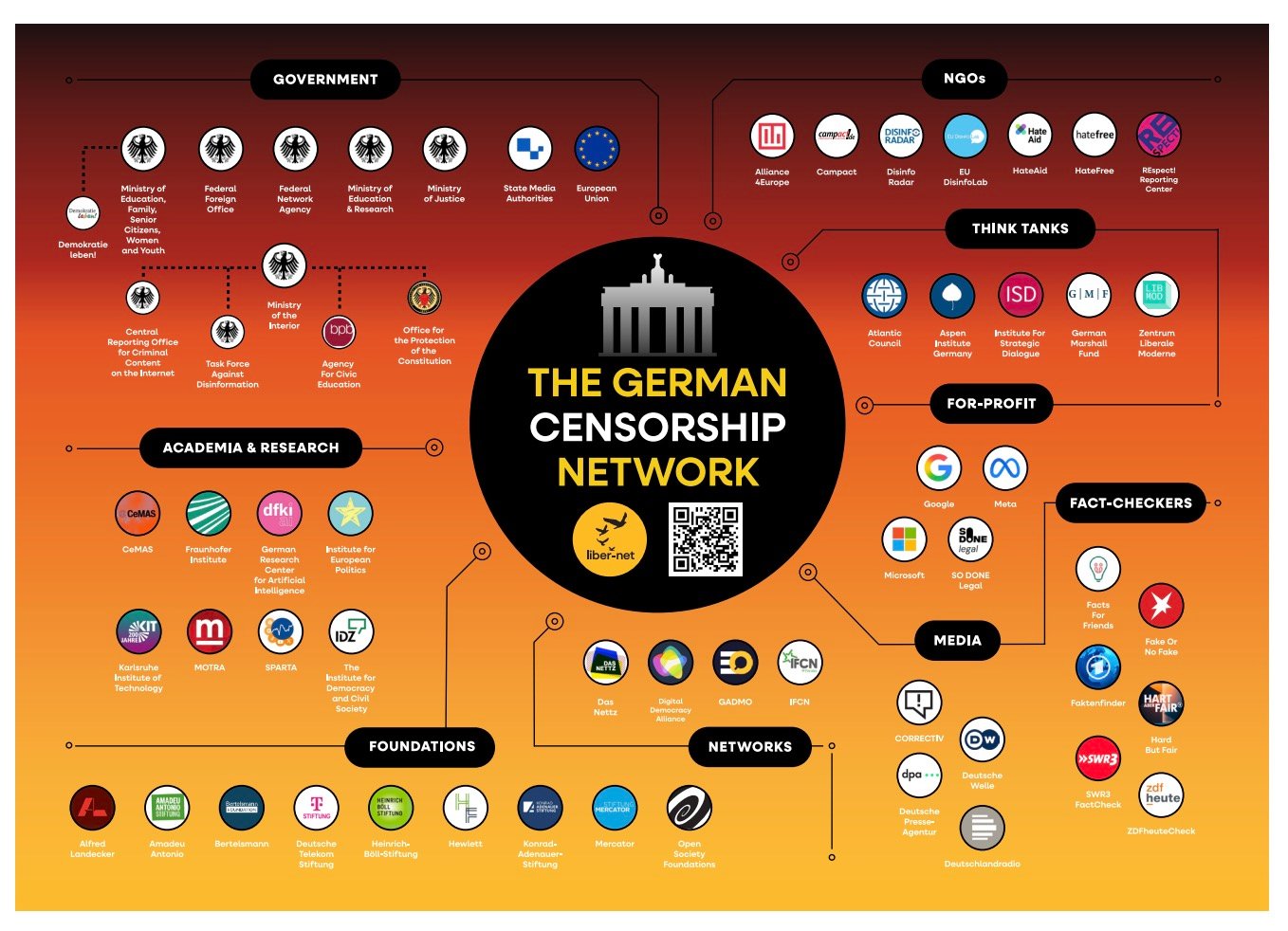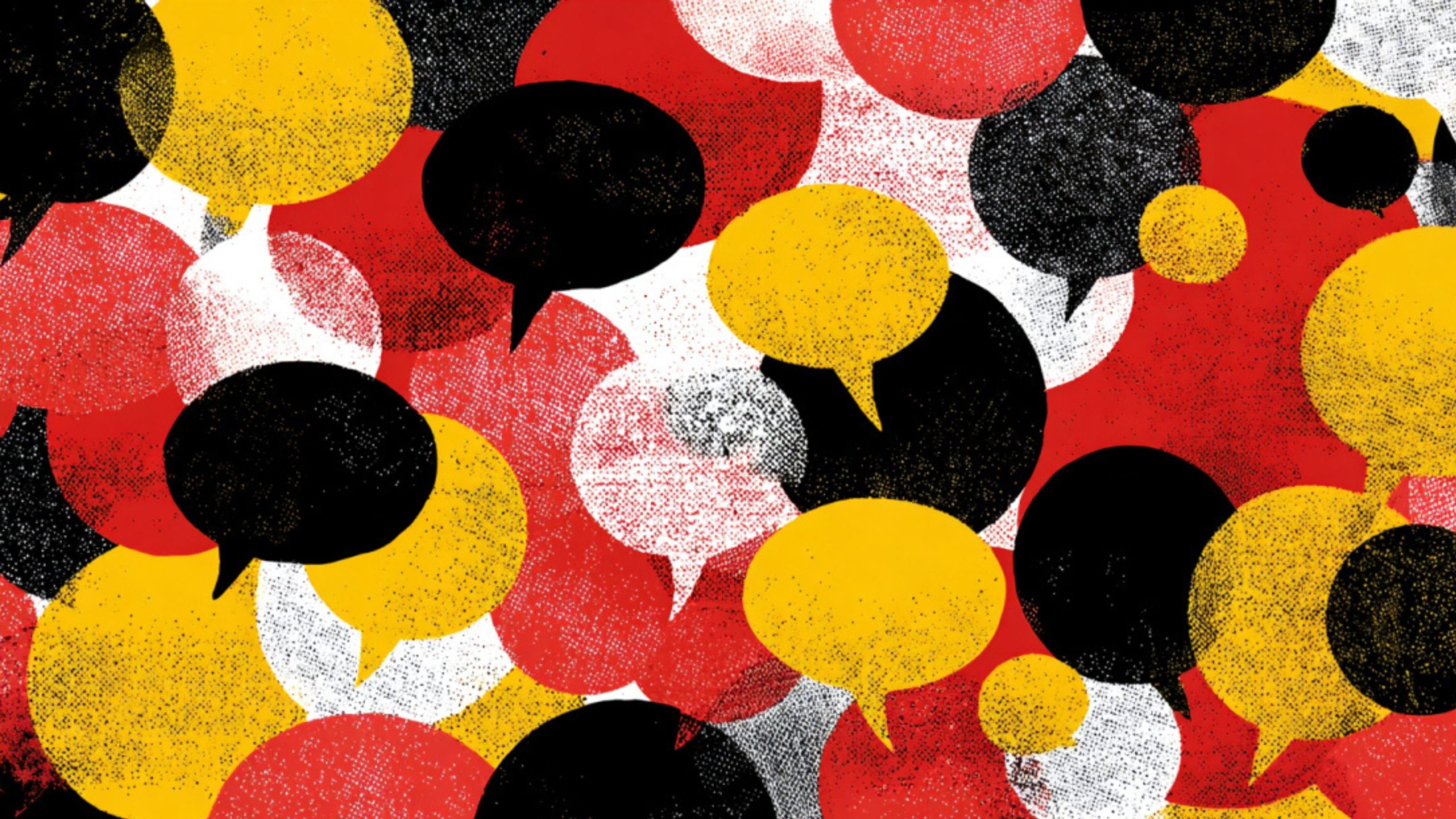Government spending on digital speech regulation in Germany has surged over the past decade, increasing more than five times since 2020 and totaling around €105.6 million by 2025.
The findings come from The Censorship Network: Regulation and Repression in Germany Today, a detailed investigation by Liber-net, a digital civil liberties group that monitors speech restrictions and information control initiatives across Europe.
The report describes a sprawling alliance of ministries, publicly funded “fact-checkers,” academic consortia, and non-profit groups that now work together to regulate online communication.
It started as a handful of “anti-hate” programs and has evolved into a broad state-financed system of “content controls,” supported by both domestic and foreign grants.
Liber-net’s accompanying databases and map document more than 330 organizations and over 420 separate grants, rating each on a one-to-five scale according to its level of direct censorship involvement.
Between 2020 and 2021, public funding for these initiatives tripled, and by 2023 it had doubled again.

The Federal Ministry for Education and Research (BMBF) has been the leading funder, responsible for more than €56 million in allocations since 2017.
Much of this money has gone to the RUBIN consortium, a research group developing artificial intelligence tools designed to identify and filter “disinformation.”
Liber-net notes that these systems, while presented as safeguards against falsehoods, also concentrate control over what qualifies as legitimate speech.
Foreign contributions have further reinforced this system. The European Union has provided roughly €30 million since 2018, including €4 million for Deutsche Welle’s Media Fit program, which counters online narratives related to the Russia-Ukraine war.
The United States government has contributed about $400,000 to fourteen German organizations during the same period. These combined investments reveal a coordinated transatlantic interest in shaping the online information landscape.
The financial expansion has been matched by a more aggressive enforcement effort within Germany.
In June 2025, police executed around 170 raids targeting individuals accused of online “hate speech.” Earlier raids reported by CBS in February focused on similar allegations.
One of the most publicized cases involved David Bendels, editor-in-chief of Deutschland Kurier, a publication affiliated with the AfD. Bendels received a seven-month suspended sentence for posting a meme on X that showed Interior Minister Nancy Faeser holding a sign reading “I hate freedom of expression.”
The legal foundation for these operations is the Network Enforcement Act (NetzDG), which requires social media platforms to remove illegal or offensive content within strict deadlines.
Originally framed as a tool to combat extremism, the law has drawn opposition from parties across the spectrum, including the Left Party, the Free Democrats, the Greens, and the AfD.
They argue that it undermines open debate and gives private corporations excessive authority over what can be published online.
Liber-net’s research positions Germany as a key actor in Europe’s expanding structure of information control.
Liber-net concludes that Germany’s speech regulation framework has moved beyond addressing harmful content and now functions as a managed system for policing public discourse.
With significant funding, cross-border backing, and little transparency, the country’s “content control” network demonstrates how easily censorship can be institutionalized under the language of safety and social responsibility.










